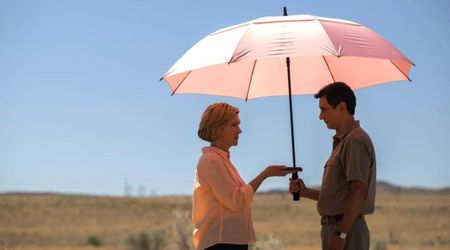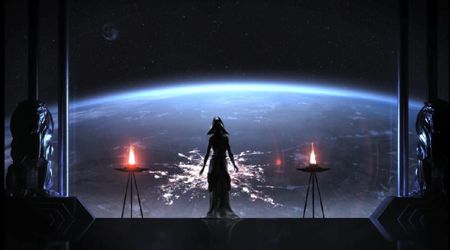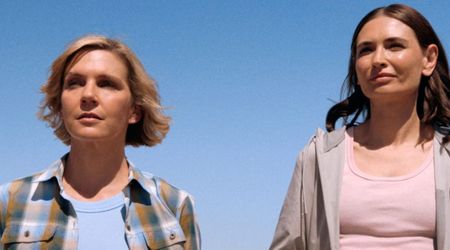'The Magicians' Season 5 Episode 5 uses full moon madness myths rooted in culture and science

After discovering that the "Lunatics" or moon worshippers might be the only ones who would know anything about "moving the moon", we see Julia (Stella Maeve) and Alice (Olivia Taylor Dudley) consult a Lunatic at a psychiatric facility who says they have to get "moon brain" to see the moon's aura and get her to listen and move so that the Harmonic Convergence can be avoided.
But here is the funny thing. There is actually something like "moon brain" or being "moonstruck" in reality that has perpetuated the "full-moon madness" urban legend. According to a Scientific American article, the origins of this belief that humans behave peculiarly during the full moon is linked to the work of psychiatrist Charles L. Raison.
Raison postulated that before the advent of outdoor lighting in modern times, the bright light of the full moon deprived people who were living outside — including many who had severe mental disorders—of sleep.
"Because sleep deprivation often triggers erratic behavior in people with certain psychological conditions, such as bipolar disorder (formerly called manic depression), the full moon may have been linked to a heightened rate of bizarre behaviors in long-bygone eras," states the article.
So in effect, the "lunar lunacy" is what Raison and his colleagues refer to as a “cultural fossil.” It is the kernel of real experience of being sleep deprived on full moons that have given rise to the "full moon madness" myth.
Similarly, a French Agricultural Research Centre for International Development (CIRAD) study has shown that despite its very low intensity, moonlight affects coffee trees on a molecular level, and disrupts their circadian clock. "Our analysis of the differentially regulated genes seems to show that coffee trees see moonlight as a form of stress,” says Jean-Christophe Breitler, a CIRAD geneticist based in Mexico.
"It disrupts not just the genes in the circadian clock, but also many others controlled by them, such as genes linked to photosynthesis, lipid biosynthesis, growth control, and response to oxidative and heat stress." The article goes on to state that there is a link between moonlight and the lunar cycle and the biological cycles of many living beings.
But it has less to do with the moon's gravitational pull that affects large bodies of open water like oceans (but not the "moisture in our brains" like the Greeks believed). Instead, its effect is related to the light it emits that disrupt photosensitive processes like the circadian rhythm in humans, animals, and plants.
So in a sense, because we now have 24 hours lighting in our modern life, should we choose to keep the lights on, and light pollution in general, chances are we have "moon brain" symptoms of sleep deprivation even when the moon is not full.
The effect of the full moon on people's personas has also led to some odd spiritual convictions. For instance, in the middle ages, 13th-century Italian philosopher St. Thomas Aquinas in his thesis 'Summa Theologica' said that demons harassed humans during certain phases of the Moon to explain odd behavior linked to the Moon's phases.
It is an interesting move for the series to incorporate some real science behind its plot -- but don't go expecting to see the "moon's aura" anytime soon!










